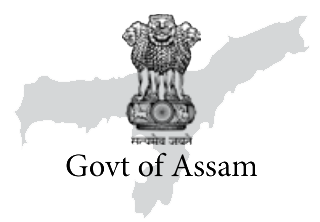It was an unusually busy day for the staff of the Chenga Block Primary Health Centre (PHC). The entrance to the PHC had been whitewashed and decorated. There was a makeshift reception gate, too, wherein doctors and health workers were waiting with gamosas to welcome a guest in whiose assessment lied their certificate of dedication and service. The day was April 7. The second day of a unique health initiative termed Swasthya Sewa Utsav, a first-of-its-kind practice anywhere in the country, to assess Government-level health institutions over three days. The benchmarks were health infrastructure, service delivery, and human resources in Government health institutions across Assam, under the aegis of the National Health Mission.
The PHC in Chenga, established in 1955, was among the 1252 institutions evaluated during the exercise. After a few minutes of the arrival of this reporter, came the appointed evaluator Ms Nimashree Dauka, an Assam Civil Service officer, now posted in Barpeta district as an Assistant Commissioner. “After the success of Gunotsav in elevating the standard of education in Government schools, we felt the importance of having one such exercise for Government-owned health institutions in the State. Having realised that Assam is the first State in the country to do so has given me an additional focus,” she told Asom Barta.
“Health is a subject that touches the lives of the rich and the poor, the literate and the unschooled, beyond the gender, sex, caste, and religious divide. In that sense, it is everybody’s call that the sector should be vibrant and healthy at any point in time. Hence, the exercise will give us a true picture of the areas that need improvement to fulfil people’s expectations,” she told this reporter.
“This is a very important exercise. It will benefit all the stakeholders: doctors and health workers, the institutions as well as patients. At this point, these Government-health institutions do not have enough facilities for medical investigation or research. This evaluation exercise will help us take note and mitigate some of these deficiencies,” said Dr Nurul Islam, the Medical Officer of Chenga Subdivision.
In February, the NHM had conducted a training and sensitisation programme for evaluators in Assam.
The initiative geared to bring a transformation in health care services was conceived by Chief Minister Dr. Himanta Biswa Sarma. Towards that end, he unveiled a logo of the Swathya Sewa Utsav on March 29 at Janata Bhawan in Guwahati in the presence of the State Health Minister Keshav Mahanta. Later on April 5, a day prior to the launch, NHM Mission Director Dr MS Lakshmi Priya interacted with health officials of all districts through video conferencing briefing them of the exacting standards expected of them, the health institutions, and the parameters thereof. She informed them that the Ministry of Health & Family Welfare was interested in the key learnings from this exercise for future use.
Among the external evaluators like Ms Dauka, the NHM had sought the services of Members of Parliament/MLAs, senior bureaucrats for assessment of these institutions. They were aided by faculties/doctors/postgraduate students at medical colleges. In total, 450 teams spread across the State covering 21 district hospitals, 16 sub divisional civil hospitals, 205 community health centres and 1010 PHCs based on a pre-defined checklist against each category of health institutions.


Assessing one such institution in Gandhi Basti in Guwahati,
Dr Anup Talukdar, a district veterinary officer and an evaluator, pointed out to this reporter that the health centre was operating from a rented accommodation and hence had limitation in expanding its scope. However, he was fulsome in his praise for its health workers.
Auxillary Nurse and Midwife Sima Das, while operating from the Health Service Unit in Hengrabari in Guwahati, sounded emotional while narrating to this newsltter that she was looking forward to this day since she first heard that such an exercise would be put into motion by the NHM. “This has been a learning experience. At the same time, I shared with the evaluator the constraints that we face while on duty,” she told this newsletter, adding that her work will finally find acceptance.
Dr Nilmadhav Das, Director Health Services, Assam highlighted the importance of uplifting the standard of health services delivered to a benchmark set by Indian Public Health Standards in his interaction with this reporter.
Such findings were precisely the reason why the idea of Swasthya Sewa Utsav was conceived. The outcome will, in likelihood, lay down the track on which health care in the State need to jog.












